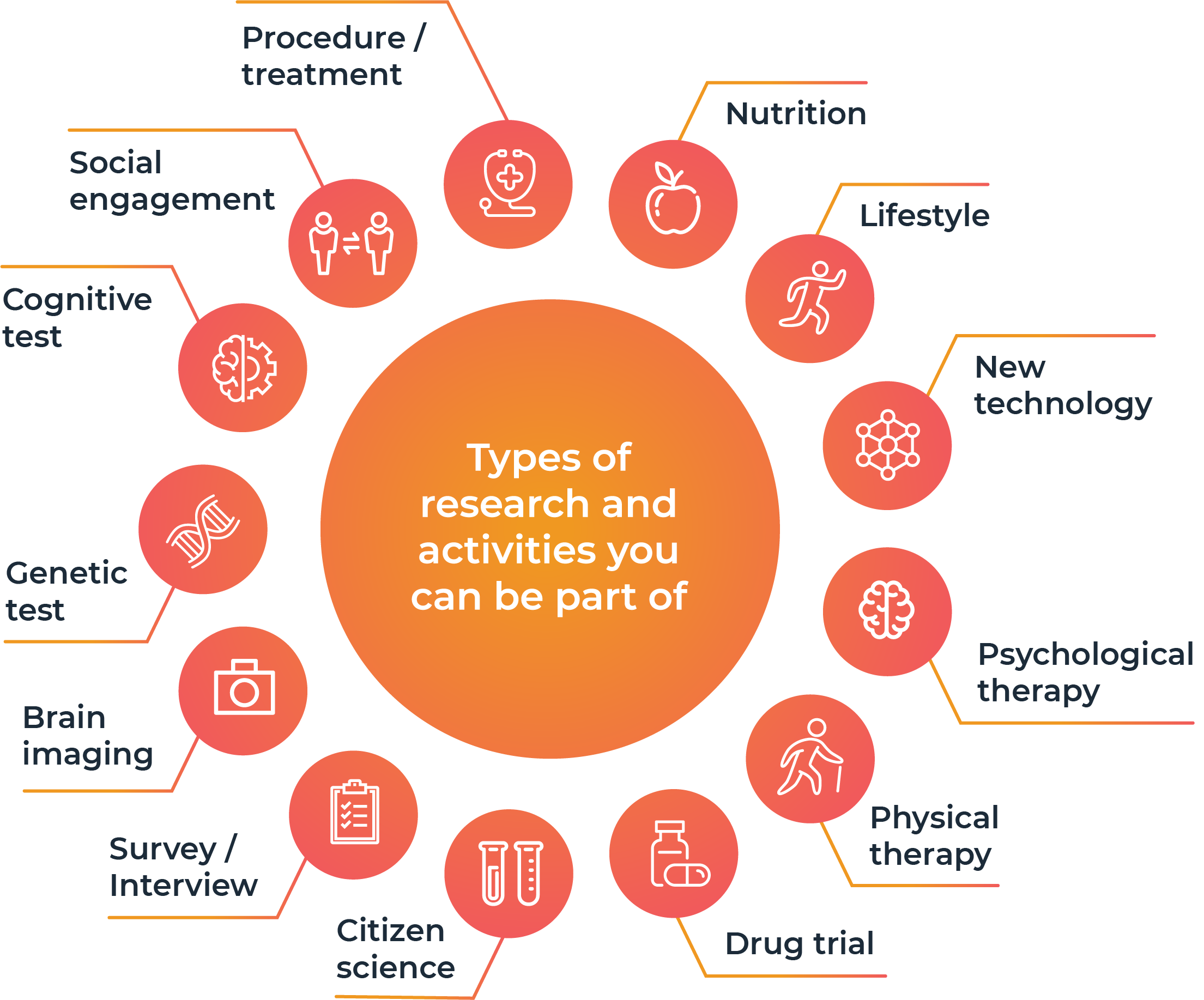


Types of research and activities you can be part of: Nutrition, lifestyle, new technology, psychological therapy, physical therapy, drug trial, citizen science, survey/interview, brain imaging, genetic test, cognitive test, social engagement and procedure/treatment.
Intervention research is all about learning what treatments or strategies work best to improve outcomes and make a positive difference to people’s lives.
In a treatment trial, you might get asked to trial a new drug, lifestyle habit or technology device. You might be asked to complete some questionnaires or tests before, during and after trialling the new strategy, to see if it helped to delay the onset, improve symptoms, or slow down the progression of a particular disease or condition.
Examples of research questions that would be best answered by ageing intervention studies include:
Genetic testing looks for changes – or mutations or variants – in your DNA (DNA being the code our bodies use to make genes, and genes being the instructions for our bodies).
Different types of genetic testing are done for different reasons. Examples in ageing research include:
Neuroimaging, or brain scanning, is the use of various techniques to see inside the living brain. Different types of neuroimaging include Computed Tomography (CT), Magnetic Resonance Imaging (MRI), and Positron Emission Tomography (PET). In addition to diagnosing disease and assessing brain health, neuroimaging also studies how the brain works, and how various activities impact the brain.
Examples of research questions that would best be answered by ageing neuroimaging studies include:
Survey research involves administering short answer questionnaires or tick-boxes to participants. It is a helpful method to survey a large number of people about their thoughts, opinions and feelings.
Examples of research questions that would best be answered by ageing survey studies include:
Focus group research brings together small groups of people to have a moderated open discussion. It is often used to gain an in-depth understanding concerning individuals’ perceptions and beliefs about social issues.
Examples of research questions that would best be answered by ageing focus group studies include:
Sometimes researchers offer a one-on-one interview instead of a group discussion, so that they can explore the topic more in-depth. This can be called qualitative interview research.
Citizen science research is a community-based approach to scientific inquiry led by or in collaboration with lay people who are not officially ‘scientists’ to engage in projects.
Examples of research questions that would best be answered by citizen science projects include: